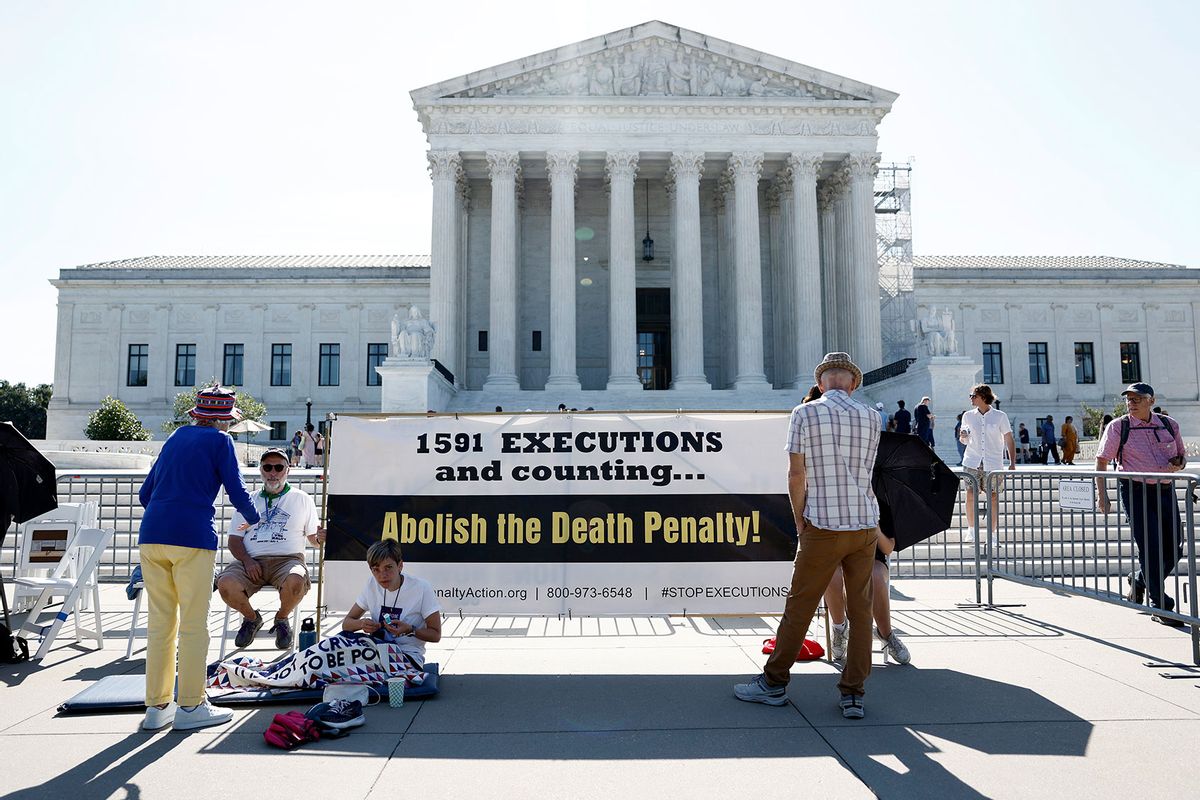The state of Missouri executed 55-year-old inmate Marcellus Williams on Tuesday night, despite calls from both the prosecutor's office and the victim's family to halt his execution.
Williams, who was convicted of the 1998 murder of Felicia Gayle, was put to death by lethal injection at 6:10 pm CT on Tuesday, according to the Missouri Department of Corrections. He maintained his innocence throughout his 23 years in prison.
The execution came after a string of last-minute attempts to spare Williams' life. His attorneys filed a number of appeals, citing jury selection bias and a lack of DNA evidence on the murder weapon. The U.S. Supreme Court, the final body that could have stopped Williams’ execution, then denied his attorneys' last request on Tuesday, with all three liberal justices dissenting.
The decision by the high court's right-wing majority came after Missouri’s Supreme Court and Republican Gov. Michael Parson also rejected requests to delay the execution.
“Mr. Williams has exhausted due process and every judicial avenue, including over 15 hearings attempting to argue his innocence and overturn his conviction. No jury nor court, including at the trial, appellate, and Supreme Court levels, have ever found merit in Mr. Williams’ innocence claims,” Parson said in a statement.
Since January, St. Louis prosecuting attorney Wesley Bell had sought to block Williams’ execution, stating that prosecutors had earlier made “constitutional errors” that contributed to Williams’ murder conviction. New evidence suggested Williams was “actually innocent," he said.
“Marcellus Williams should be alive today. There were multiple points in the timeline that decisions could have been made that would have spared him the death penalty,” Bell wrote in a statement following the execution. “If there is even the shadow of a doubt of innocence the death penalty should never be an option. This outcome did not serve the interests of justice."
The family of Felicia Gayle also opposed Williams’ execution.
A devout Muslim, Williams’ final statement was “All praise be to Allah in every situation!" The father of two was described by his attorneys as “extraordinary." He spent much of his time in prison studying Islam and writing poetry. He was known to many as “Khaliifah,” which means "leader" in Arabic.
We need your help to stay independent
One of Williams' attorneys, Larry Komp, said in a statement that his death will result in an “erosion of public confidence in the system.”
“Transparency is a hallmark of Democracy, and it is woefully missing here,” Komp wrote. “To us, Khaliifah was an inspiration. We aspire to his level of faith, to his integrity, and to his complete devotion to the people in his life. He was fiercely protective of the people he loved, and he loved deeply.”
Attorneys, politicians and criminal rights activists across the country condemned the decision to proceed with the execution. Reps. Cori Bush, D-Mo., and Alexandria Ocasio-Cortez, D-N.Y., called for the death penalty to be abolished following Williams’ execution.
“Governor Mike Parson shamefully allowed an innocent man to be executed tonight. We must abolish this flawed, racist, inhumane practice once and for all. Rest in power, Marcellus Williams,” Bush wrote.
Former Georgia Congresswoman Renitta Shannon wrote that the Supreme Court’s decision not to block Williams’ execution is indicative of larger systemic issues within America’s criminal justice system.
“What does it say about our legal system when the U.S. Supreme Court refuses to stop an execution even when the county prosecuting agency that handled the original trial files a brief in support of a stay and supports vacating the entire conviction?” she wrote in a post on X. “I sincerely hope that the conversation about #MarcellusWilliams is very far from being over. I hope this execution politically haunts every elected official in #Missouri and beyond who supported it or didn’t care enough to raise their voice about it.”
The NAACP said Williams’ death harkened back to the days of Jim Crow and racist terrorism.
"Tonight, Missouri lynched another innocent Black man," the civil rights group stated in a post on X. "Governor Parson had the responsibility to save this innocent life, and he didn’t. The NAACP was founded in 1909 in response to the barbaric lynching of Black people in America — we were founded exactly because of people like Governor Parson who perpetuate violence against innocent Black people. We will hold Governor Parson accountable. When DNA evidence proves innocence, capital punishment is not justice — it is murder."
Williams’ death is Missouri’s third execution this year.
Read more
about capital punishment



Shares